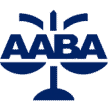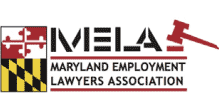Nonbinary Pronoun Usage in the Workplace: Promoting Inclusivity
Nonbinary Pronoun Usage in the Workplace: Promoting Inclusivity
According to a recent study, an estimated 11 percent of individuals who identify as LGBTQ in the United States (i.e., approximately 1.2 million people) also identify as non-binary. It is increasingly common for these individuals to go by gender-neutral, nonbinary pronouns, including they/them/theirs, along with others. The Equal Employment Opportunity Commission (EEOC) issued new guidance on June 15, 2021, taking the position that "intentionally and repeatedly using the wrong name and pronouns to refer to a transgender employee could contribute to an unlawful hostile work environment" in violation of Title VII. The EEOC further took the position:
Could use of pronouns or names that are inconsistent with an individual's gender identity be considered harassment?
Yes, in certain circumstances. Unlawful harassment includes unwelcome conduct that is based on gender identity. To be unlawful, the conduct must be severe or pervasive when considered together with all other unwelcome conduct based on the individual's sex including gender identity, thereby creating a work environment that a reasonable person would consider intimidating, hostile, or offensive. In its decision in Lusardi v. Dep't of the Army, the Commission explained that although accidental misuse of a transgender employee's preferred name and pronouns does not violate Title VII, intentionally and repeatedly using the wrong name and pronouns to refer to a transgender employee could contribute to an unlawful hostile work environment.
This suggests there could be potential liability for employers who refuse to use non-binary employees correct pronouns.
In March 2022, the Biden Administration announced a series of federal government policies that would allow U.S. citizens to select an "X" gender marker on their U.S. passport applications. Likewise, the EEOC also announced it would provide the use of nonbinary gender markers in the filing of a charge of discrimination.
Given these developments, employers may consider using gender-neutral language in communications and updating their employee policies/handbooks to allow employees to be identified as nonbinary or with a gender-neutral marker, and prohibit retaliation for the same. To promote the correct usage of gender pronouns in the workplace, many organizations now allow employees, regardless of gender identity, to put their correct pronouns in their email signature, name tags, and other communication materials. A diversity, equity, and inclusion (DEI) committee or diversity liaisons can guide employers in facilitating these conversations.













